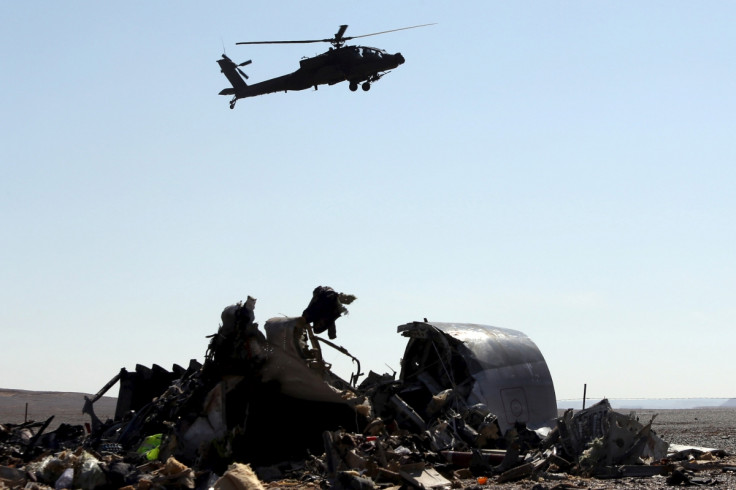Russian plane crash: 'Bomb in handbag' brought down MetroJet Russian passenger jet

An EgyptAir mechanic, who has family ties to Islamic State (Isis) militants, is suspected of planting a bomb in a handbag that brought down a Russian passenger jet that plummeted into the Sinai desert. The crash killed all 224 people on board when it came down in October.
Egyptian authorities have repeatedly affirmed that they have found no evidence that the Metrojet flight, which took off from Sharm el Sheikh Airport, was the result of a terrorist act. Security officials at EgyptAir have denied that any of its employees had been arrested.
In the hours after the crash, a Daesh (IS) affiliate known as Islamic State in the Sinai Peninsula claimed responsibility for bringing down the Airbus 321-200. Chatter between insurgents in Egypt and IS insurgents in their self-declared caliphate of Raqqa was picked up by US intelligence just after the crash.
Then in the IS magazine, Dabiq, a photo of a Schweppes soft drink can that the terrorists claimed was an improvised bomb that brought down the jet, was published. Russian officials and Western authorities have said that they believe that the jet was brought down by a terrorist device.
An anonymous source told the Reuters News agency that the mechanic, whose cousin joined IS 18 months ago, had been arrested, with two airport policemen and a baggage handler suspected of assisting the planting of the bomb. They said: "After learning that one of its members had a relative that worked at the airport, Islamic State delivered a bomb in a handbag to that person. He was told to not ask any questions and get the bomb on the plane."
The Egyptian state may face compensation claims if it was proven that airport staff brought down the jet. Another source told Reuters: "Two policemen are suspected of playing a role by turning a blind eye to the operation at a security checkpoint. But there is a possibility that they were just not doing their jobs properly."
© Copyright IBTimes 2024. All rights reserved.






